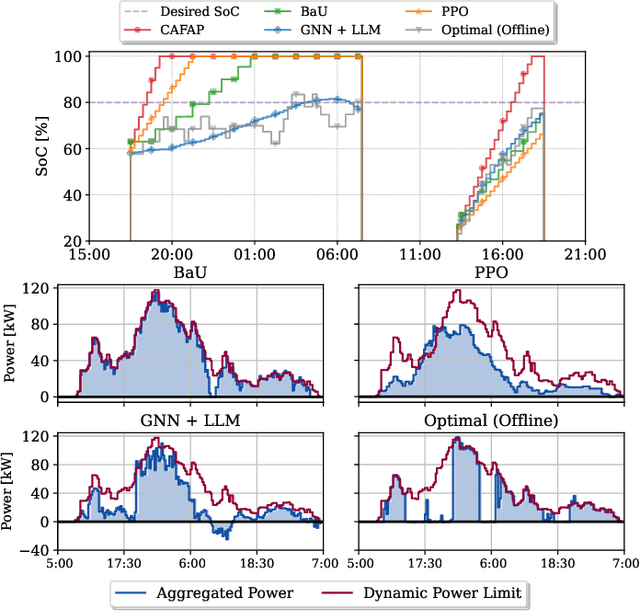Optimizing Electric Vehicles Charging using Large Language Models and Graph Neural Networks
Paper and Code
Feb 05, 2025



Maintaining grid stability amid widespread electric vehicle (EV) adoption is vital for sustainable transportation. Traditional optimization methods and Reinforcement Learning (RL) approaches often struggle with the high dimensionality and dynamic nature of real-time EV charging, leading to sub-optimal solutions. To address these challenges, this study demonstrates that combining Large Language Models (LLMs), for sequence modeling, with Graph Neural Networks (GNNs), for relational information extraction, not only outperforms conventional EV smart charging methods, but also paves the way for entirely new research directions and innovative solutions.
 Add to Chrome
Add to Chrome Add to Firefox
Add to Firefox Add to Edge
Add to Edge